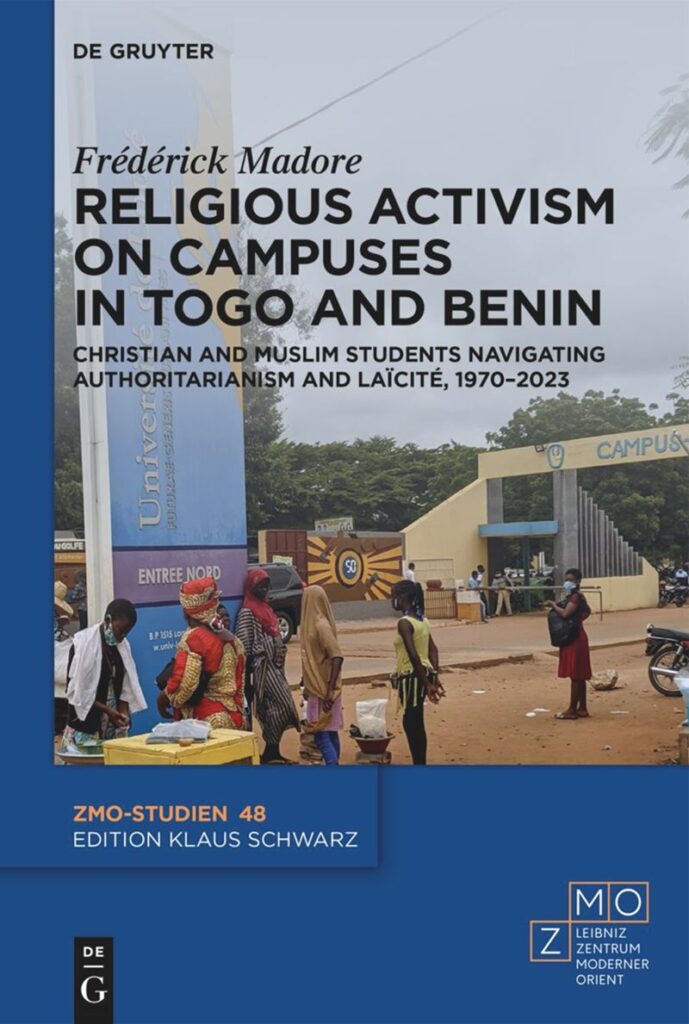
I’m delighted to announce that my forthcoming book, Religious Activism on Campuses in Togo and Benin: Christian and Muslim Students Navigating Authoritarianism and Laïcité, 1970–2023, is now listed on the De Gruyter website. While the publication date is currently set for March 2025, we are aiming for publication by the end of this year. Importantly, it will be available in open access.
This book is the culmination of research I’ve been conducting since joining the Remoboko project at Leibniz-Zentrum Moderner Orient (ZMO) in February 2021. It examines the resilience and adaptability of Christian and Muslim student associations at the University of Lomé and the University of Abomey-Calavi over five decades. The study explores how these groups navigated authoritarian regimes, political liberalisation, and the principles of laïcité while shaping campus life and offering a “social curriculum” to their members. By analysing the interplay between religion, politics, and education, the book provides fresh insights into the evolving role of faith in public universities and broader societal transformations in West Africa.
I’m deeply grateful to many people who have contributed to this work. Particular thanks go to Abdoulaye Sounaye, the PI of the Remoboko project, and my supportive and intellectually stimulating colleagues at ZMO. I’m also indebted to all my interviewees in Benin and Togo, whose insights and experiences have been invaluable.
Abstract
The interplay between religion and student activism at the universities of Abomey-Calavi (Benin) and Lomé (Togo) has often been overlooked, although faith-based organisations and student unions have coexisted since the 1970s. Based on interviews with different generations of activists, this book uncovers the neglected history of Christian and Muslim student associations on these campuses, originally strongholds of leftist and secular ideologies. It analyses the emergence of these groups under a Marxist-Leninist regime in Benin and a one-party dictatorship in Togo, and explores the implications of growing religiosity for these public universities as secular institutions.
The history of these associations reveals the campus as a microcosm reflecting wider national socio-political life, while also highlighting the importance of translocal factors in shaping the internal dynamics of these groups. Amidst the massification of university enrolments and rising graduate unemployment, faith-based associations have come to provide more than religious guidance. Increasingly, they offer a “social curriculum”, providing a space for socialisation and a set of skills, norms and moral values that complement the secular academic curriculum.